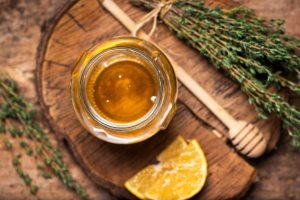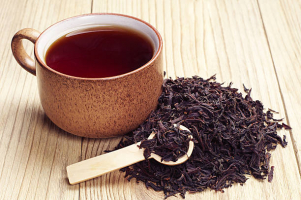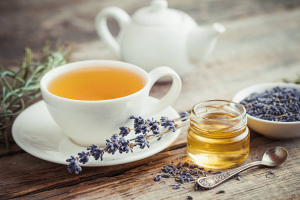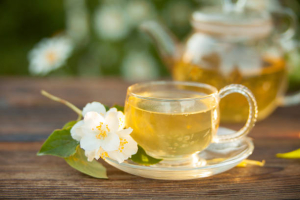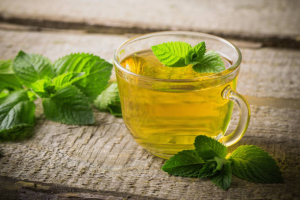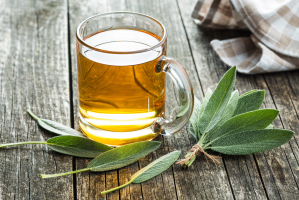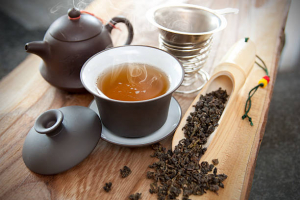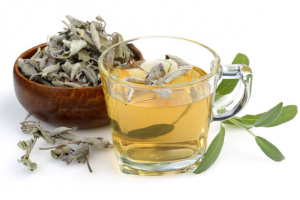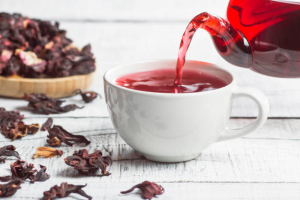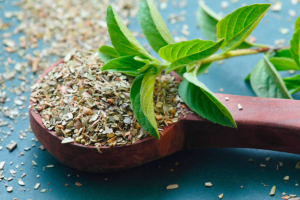Top 7 Health Benefits of Rosehip Tea
Rosehip tea is a herbal tea produced from the rose plant's pseudo-fruits. It has a delicate, flowery flavor that is slightly sweet and has a tangy aftertaste. ... read more...Rosehips are tiny, spherical, and often crimson or orange, and are found directly under the rose petals. There are hundreds of rose plant species, but most rose hip research has concentrated on the pseudo-fruits of the Rosa canina plant. Rosehips have been associated with a variety of health advantages, including enhanced immunity, cardiovascular health, weight loss, and skin aging. Read on for more information.
-
Antioxidants are chemicals that prevent or minimize cell damage caused by free radical molecules. Consuming antioxidant-rich foods and drinks may protect against chronic illnesses such as heart disease, cancer, and type 2 diabetes. Rosehip was shown to have the highest antioxidant capacity in a study on the antioxidant contents of six fruit extracts.
It has been discovered to have significant quantities of polyphenols, carotenoids, and vitamins C and E, all of which have potent antioxidant qualities. The amount of antioxidants in rosehips varies substantially based on the plant type, harvest period, and altitude at which the plant was produced. Plants from greater elevations, interestingly, have higher antioxidant levels. Furthermore, research suggests that dried rosehips may have fewer antioxidants than fresh types. Although rosehip tea may be brewed with either, using fresh rosehips instead of dried ones or tea bags may provide more antioxidants.

Rich in antioxidants 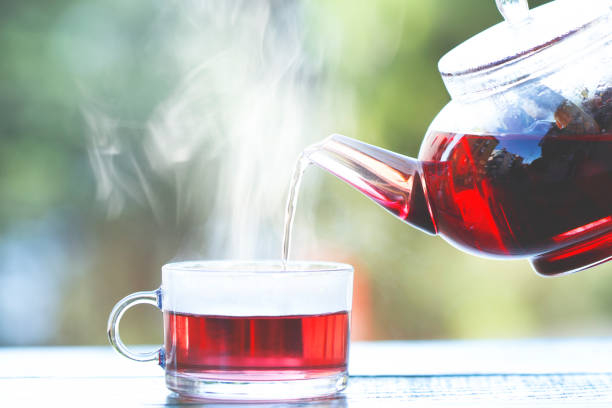
Rich in antioxidants -
One of the most striking advantages of rosehips is their high vitamin C content. While the precise quantity varies depending on the plant, rosehips have been demonstrated to have some of the highest vitamin C levels of any fruits or vegetables. Vitamin C performs numerous important roles in your immune system, including encouraging the creation of white blood cells called lymphocytes, which defend your body from infection, improving lymphocyte function, and aiding in the maintenance of your skin's protective barrier against outside pathogens.
Rosehips are strong in polyphenols, vitamins A and E, and vitamin C, all of which assist to improve and preserve your immune system. While animal studies show that supplementing with concentrated rosehip extract might improve immune function, human data is limited.

May support a healthy immune system 
May support a healthy immune system -
Rosehip tea may enhance heart health due to its high antioxidant content. Several studies have found a link between vitamin C consumption and the risk of heart disease. A meta-analysis of 13 trials found that taking at least 500 mg of vitamin C per day was related to a considerable reduction in LDL (bad) cholesterol and blood triglycerides, two risk factors for heart disease. Furthermore, observational studies have connected a lack of vitamin C to an increased risk of dying from heart disease.
Flavonoids are abundant in rosehips. These antioxidants have been demonstrated to lower blood pressure and enhance blood flow to the heart in persons with high levels. A 6-week trial of 31 obese people revealed that those who ingested a drink containing 40 grams of rosehip powder per day had considerably lower blood pressure and LDL (bad) cholesterol levels than those who did not. However, the researchers speculated that the powder's high fiber content, which is absent in rosehip tea, may have contributed to the favorable benefits.

May protect against heart disease 
May protect against heart disease -
According to research, rosehip tea may help with weight loss. Rosehips from the Rosa canina plant have been shown in studies to be high in an antioxidant called tiliroside, which may have fat-burning abilities. In an 8-week trial of obese mice, those fed a high-fat diet with 1% rosehip extract acquired considerably less body weight and stomach fat than those who did not get the supplement.
Human studies provide comparable findings. In a 12-week trial of 32 overweight people, ingesting 100 mg of rosehip extract daily reduced body weight and stomach fat much more than the placebo group. However, a recent study focuses on the effects of concentrated rosehip extract rather than tea. More human research is required to assess the link between rosehip tea and weight loss.

May aid weight loss 
May aid weight loss -
While the precise mechanism is unknown, some evidence shows that rosehips may help prevent type 2 diabetes. In a study of mice fed a high-fat diet, supplementing with rosehip powder for 10-20 weeks reduced blood sugar levels, fasting insulin levels, and liver fat cell formation — all of which are risk factors for type 2 diabetes. Another study found that rosehip extracts dramatically reduced fasting blood sugar levels in diabetic rats.
In a trial of people with obesity, however, daily rosehip powder supplementation showed no meaningful impact on fasting glucose levels or insulin sensitivity. These findings were applicable to both healthy and impaired blood sugar levels. As with weight reduction, existing research on rosehip extract is limited, and additional study on the association between rosehip tea and type 2 diabetes risk is required.
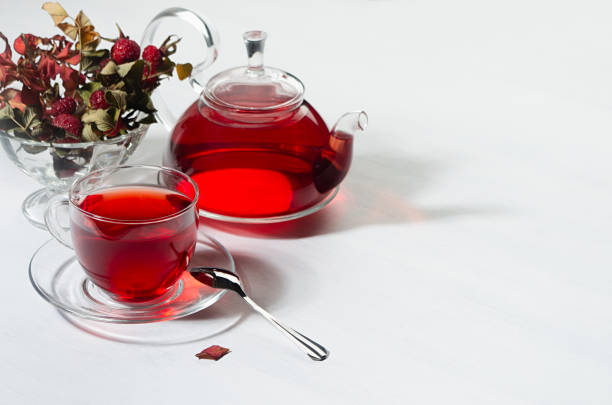
May protect against type 2 diabetes 
May protect against type 2 diabetes -
Rosehip tea contains anti-inflammatory components such as polyphenols and galactolipids. Galactolipids are the most common form of fat found in cell membranes. They have recently been examined for their significant anti-inflammatory effects and ability to alleviate joint discomfort. An analysis of three researchers found that taking rosehip supplements considerably decreased joint discomfort in persons with osteoarthritis. Furthermore, when compared to the placebo group, individuals who received rosehip were twice as likely to report better pain levels.
Another 4-month trial of 100 persons with osteoarthritis indicated that those who took 5 grams of rosehip extract daily had considerably reduced pain and greater hip joint mobility when compared to the control group. In fact, 65 percent of rosehip group members experienced some pain relief. Rosehip extract has also been proposed as a treatment for rheumatoid arthritis, while research is limited and high-quality human studies are missing. Keep in mind that research on the anti-inflammatory properties of rosehips has focused on concentrated extract rather than tea.

May reduce inflammation and pain 
May reduce inflammation and pain -
Collagen is the most prevalent protein in your body and is responsible for skin suppleness. Vitamin C has been demonstrated to stimulate collagen synthesis and protect skin cells from UV damage, both of which can help maintain your skin tighter and younger-looking. Drinking rosehip tea, which is abundant in this vitamin, may help your skin. Furthermore, rosehip tea includes the carotenoid astaxanthin, which may have anti-aging properties by preventing collagen breakdown.
Other carotenoids in rosehip tea may also be beneficial to skin health. Vitamin A and lycopene, in particular, are known to protect skin cells from UV damage. A study of 34 adults over an 8-week period found that those who drank 3 grams of rosehip powder per day had less crow's feet wrinkles, as well as better skin hydration and suppleness. It is unknown, however, if drinking rosehip tea would have the same effect on skin health.

May fight skin aging 
May fight skin aging









